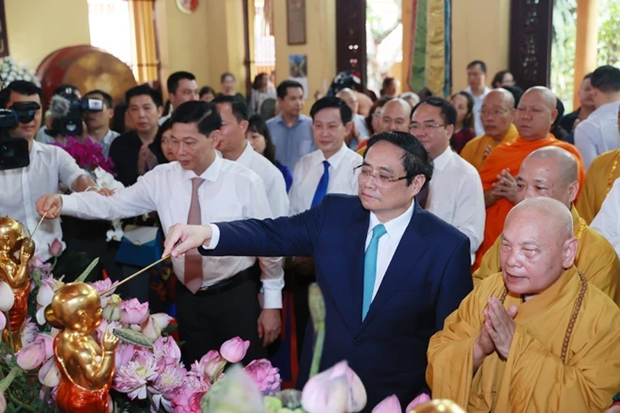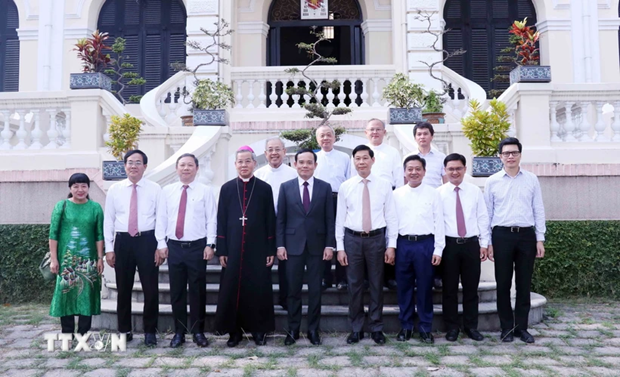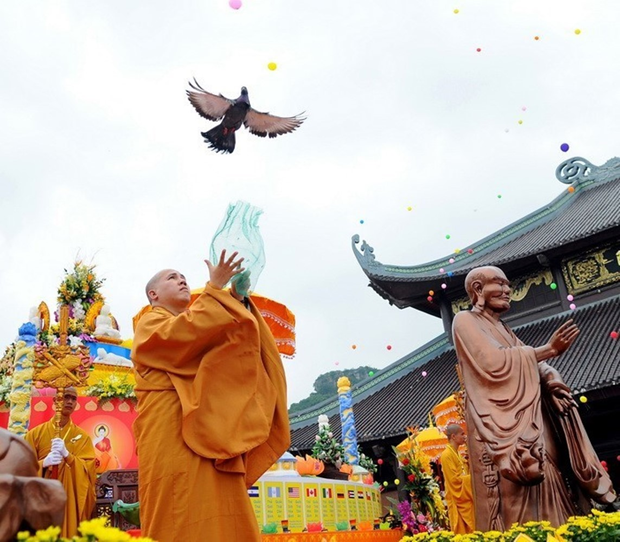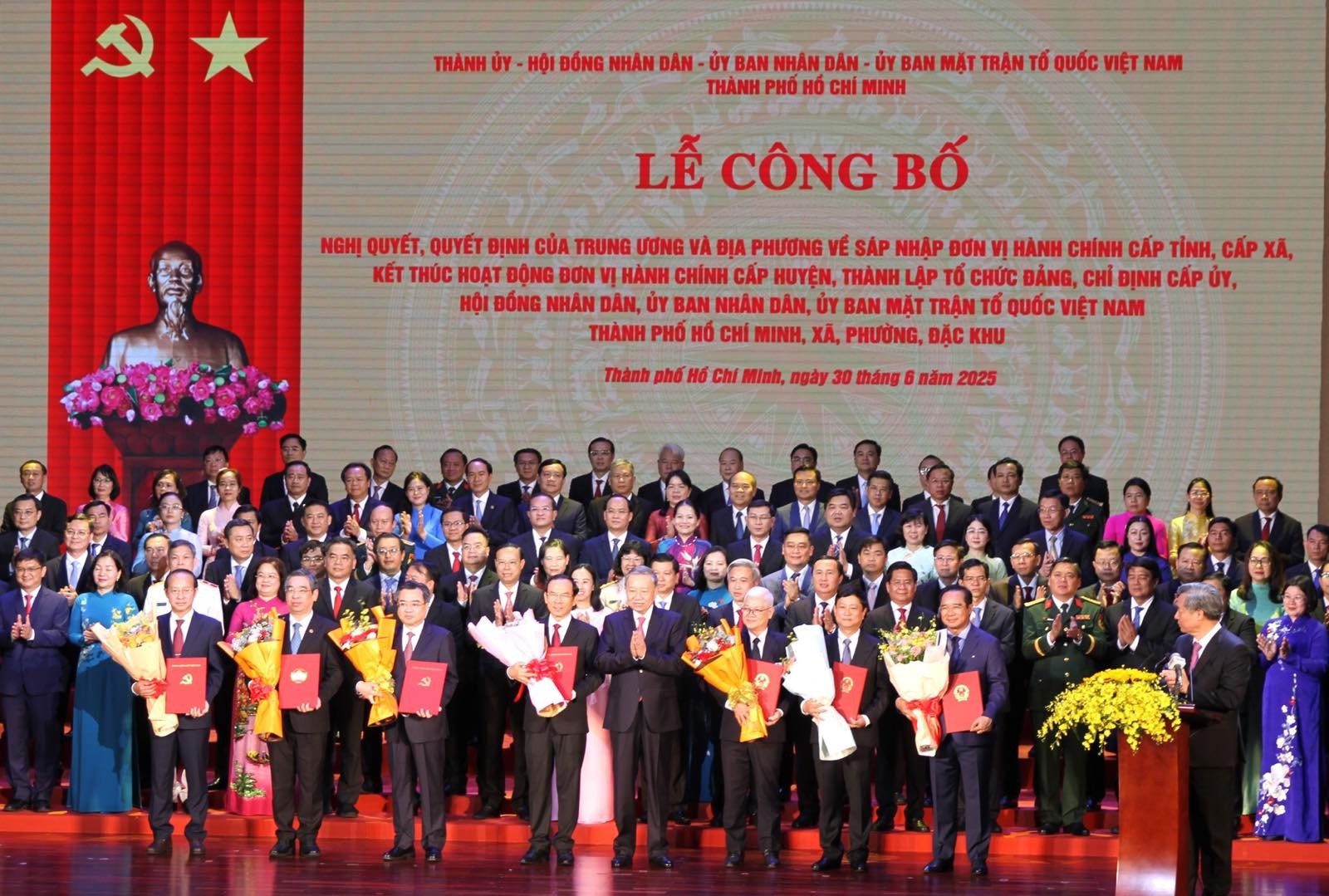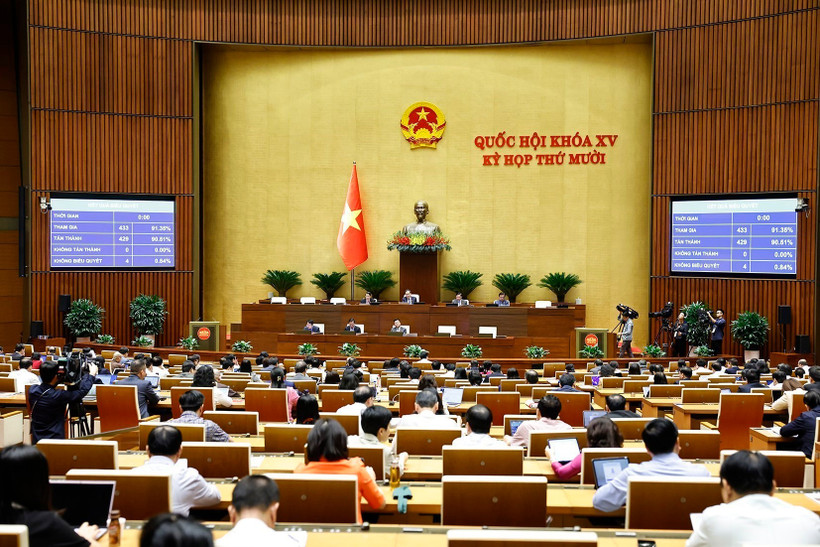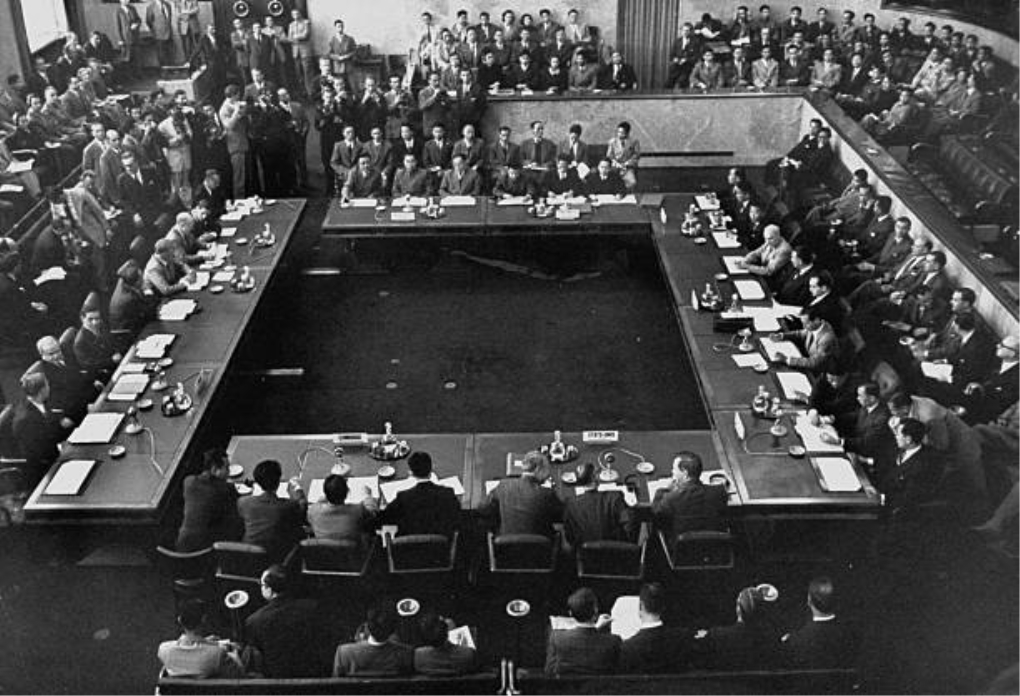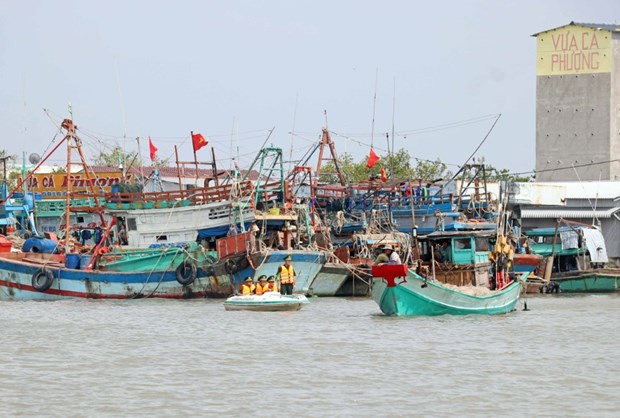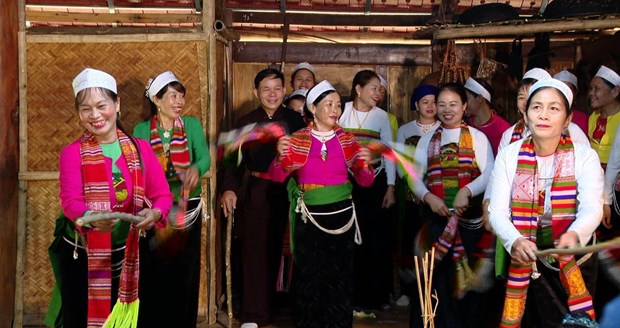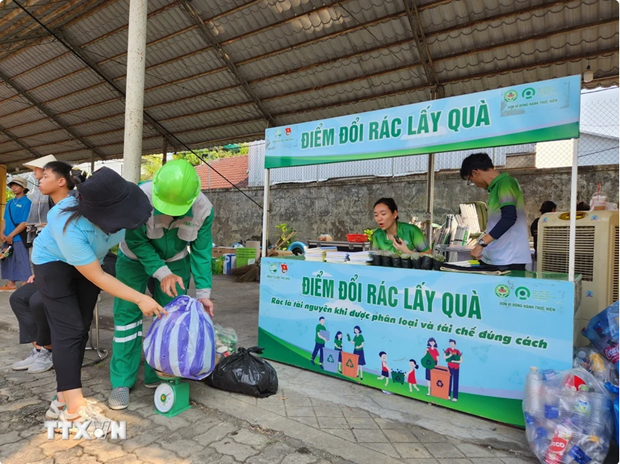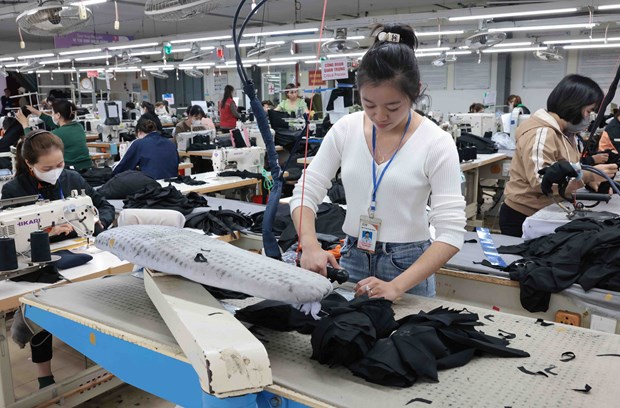The Christian Word of Life Church has yet to be granted a religious operating licence or a legal status, but about 40 branches in Vietnamese cities and provinces have been licensed to operate in line with the Law on Belief and Religion.
Pastor Pham Tuan Nhuong, Head of the Christian Word of Life Church in Viet Nam, said he himself and other members have received support in religious activities.
Nhuong and other dignitaries and followers of other religions have, for many years, joined hands with people all over the country in national construction, and received favourable conditions to practise their religions in localities.
Prime Minister Pham Minh Chinh and Buddhist dignitaries perform a ritual at Quan Su Pagoda in Hanoi on the occasion of Vesak Day, the 2567th birth anniversary of the Buddha. (Photo: VNA)
The religious belief that goes in tandem with patriotism, national pride and civic consciousness motivates each individual to lead a good religious and secular life.
Viet Nam is now home to 43 religious organisations belonging to 16 religions, with 26.7 million followers, nearly 60,000 dignitaries, some 30,000 worship facilities, and tens of millions of religious publications.
The Party’s and State's respect and consistency in religious policies and the reality have strengthened the faith of all religious followers, and encouraged them to work together to build their homeland.
On the occasion of the Christmas 2023 and New Year 2024 holidays, Deputy Prime Minister Tran Luu Quang visited and extended his wishes to the Archbishop's Palace of Ho Chi Minh City Archdiocese, dignitaries of the Catholic Bishops' Conference of Viet Nam, and the General Confederation of the Evangelical Church of Viet Nam (South).
In Ho Chi Minh City, Archbishop Nguyen Nang thanked the Party and the State for their sentiments and attention to Catholics, and expressed his joy and pride in the country's great achievements in the past year, especially in foreign affairs, notably the positive development in the relations with the Vatican, contributing to enhancing Viet Nam’s position in the international arena.
At the General Confederation of the Evangelical Church of Viet Nam (South), Pastor Thai Phuoc Truong also highlighted the Party’s and the State’s attention and support to the Church and Protestants across the country.
It can be said that respecting people's right to freedom of belief and religion is the consistent and thorough policy of the Vietnamese Party and State, and is institutionalised by the Constitution and laws.
Deputy Prime Minister Tran Luu Quang (5th, right), Archbishop of the Archdiocese of Ho Chi Minh City Nguyen Nang and other delegates at the Archdiocese of Ho Chi Minh City. (Photo: VNA)
Then President Ho Chi Minh on September 2, 1945 delivered the Declaration of Independence announcing the birth of the Democratic Republic of Viet Nam, now the Socialist Republic of Viet Nam. The President’s and the Party’s views on protecting human rights were made clear in the Declaration of Independence.
“All men are created equal. They are endowed by their Creator with certain inalienable rights, among them are Life, Liberty, and the pursuit of Happiness," the Declaration of Independence read.
The right to freedom of belief and religion is one of the fundamental rights of human beings. Therefore, throughout the national revolution’s history, especially during nearly 40 years of Doi Moi (renewal), the Party and the State have endeavoured to ensure that the right is respected and practised. Through this effort, they aim to gather and consolidate the religious-ethnic solidarity bloc to build and develop the nation.
The General Confederation of the Evangelical Church of Viet Nam (South) convenes its 48th General Assembly and the 10th general assembly of bishops in Ho Chi Minh City on July 5, 2022. (Photo: VNA)
Many relevant legal documents have been issued, serving as the direct basis for state management in this regard, notably the Law on Belief and Religion, passed by the 14th National Assembly on November 18, 2016, which marked a milestone in the realisation of Viet Nam's consistent policy on the right to freedom of belief and religion.
The legal document directly prescribes belief and religion matters, representing the highest-ever legal value in Viet Nam, and concretising the spirit of the 2013 Constitution regarding human rights, citizens' rights, and the right to freedom of belief and religion for all. It also maintains compatibility with international law in the context of Viet Nam's intensive and extensive international integration.
In addition, Vietnamese religious organisations have held numerous international events highly regarded by the public, such as the United Nations Day of Vesak hosted by the Viet Nam Buddhist Sangha for three times, with the participation of over 1,000 international delegates from 120 countries and territories; the meeting of the Federation of Asian Bishops' Conferences (FABC) in 2023; the celebration of 100 years of Protestantism in Viet Nam in 2011; and the 6th Asia-Europe Meeting (ASEM) Interfaith Dialogue.
A ritual performed at the 2014 United Nations Day of Vesak. (Photo: VNA)
Viet Nam's open religious policy also creates favourable conditions for foreigners legally residing in Viet Nam to practise their religions, and legal frameworks for domestic religious organisations to engage in exchanges and cooperation with international counterparts, thereby affirming Viet Nam's position in the regional and global religious landscape and contributing significantly to the foreign affairs of the Party and the State.
After nearly 40 years of renewal, and active and proactive international integration, Viet Nam has made remarkable strides in ensuring the right to freedom of belief and religion, which has been recognised and praised by the international community.
The reality has been seen as a trenchant response to the sabotage arguments of hostile and reactionary forces about the religious situation in Viet Nam./.

